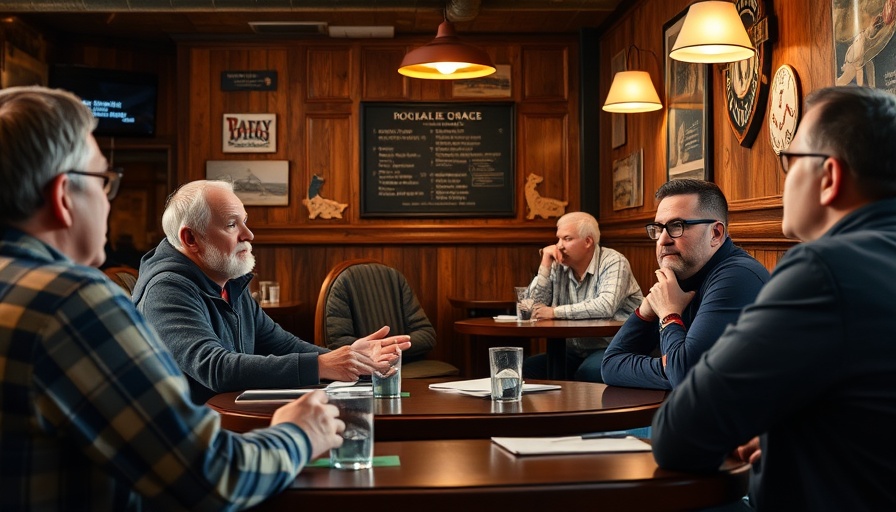
Democrats Gear Up to Challenge Republican Incumbents in Maricopa
In the landscape of American politics, every election cycle seems to bring its own unique challenges and surprises. As the midterm elections approach, Democrats in Arizona are honing in on three Republican incumbents, with their sights particularly set on U.S. Rep. Eli Crane. Representing the rapidly growing city of Maricopa, Crane has become a focal point for Democrats aiming to dismantle what they perceive as the GOP’s grip on power.
Backlash Against Trump’s Megabill: A Key Strategy
The Democratic strategy? To leverage the potential backlash against President Donald Trump's controversial megabill—a sweeping legislative agenda that could impact health care for millions while adding trillions to the national debt. With Rep. Suzan DelBene, chair of the Democratic Congressional Campaign Committee, emphasizing accountability, the opposing party believes that voters will react negatively to the implications of this bill during the upcoming election. DelBene is confident: “They’re accountable for the impact on their communities. We’re going to continue to make sure that people understand that.”
Understanding Voter Sentiment: The Local Perspective
Crane, who previously won a second term with a 9-point margin, believes that his fate—and that of his constituents—hinges on local sentiment. During a recent town hall meeting in Maricopa, Crane assured his supporters that he remains committed to their interests. “It’s going to come down to what the people in the district want,” he stated. As the changing demographics of Maricopa County continue to evolve, understanding the concerns of voters will be essential for either side to claim victory.
Nez’s Rematch: Could History Repeat Itself?
Crane faces competition from Jonathan Nez, the former president of the Navajo Nation, who is gearing up for a rematch after conceding defeat to Crane in the last cycle. DelBene calls Nez a “great candidate” with a “huge opportunity” against what she describes as one of “the most extreme Republicans” in Congress. However, Nez’s previous losses raise questions about his chances, especially given the national trend of incumbents successfully defending their seats.
The Fundraising Battle: A Deciding Factor?
Typically, fundraising can be a decisive factor in political campaigns, and in this case, Crane is significantly ahead—having raised $2.4 million compared to less than $100,000 for Nez. The NRCC remains unfazed by the Democratic challenge, attributing Nez’s past failures to his status as a “failed liberal career politician.” Regardless, as political analysts have noted, incumbency does not automatically guarantee victory, especially in a competitive environment.
The Bigger Picture: A Shift in House Composition?
The stakes in Arizona reflect broader national dynamics. Historically, Democratic parties have struggled during midterm elections, losing House seats in most contests over the past 90 years. However, with Republicans holding a slim majority, some argue that this might be the perfect environment for Democrats to retake control—if they can effectively communicate their position to the electorate.
As the campaign heats up, the focus will not only be on pivotal local issues but also on how national narratives, like Trump’s megabill, shape voter choices. The unfolding political theater in Maricopa promises to be a critical indicator of electoral sentiment going forward. With this context, residents are encouraged to engage actively with candidates to discern who best represents their interests in Congress.
 Add Row
Add Row  Add
Add 




Write A Comment